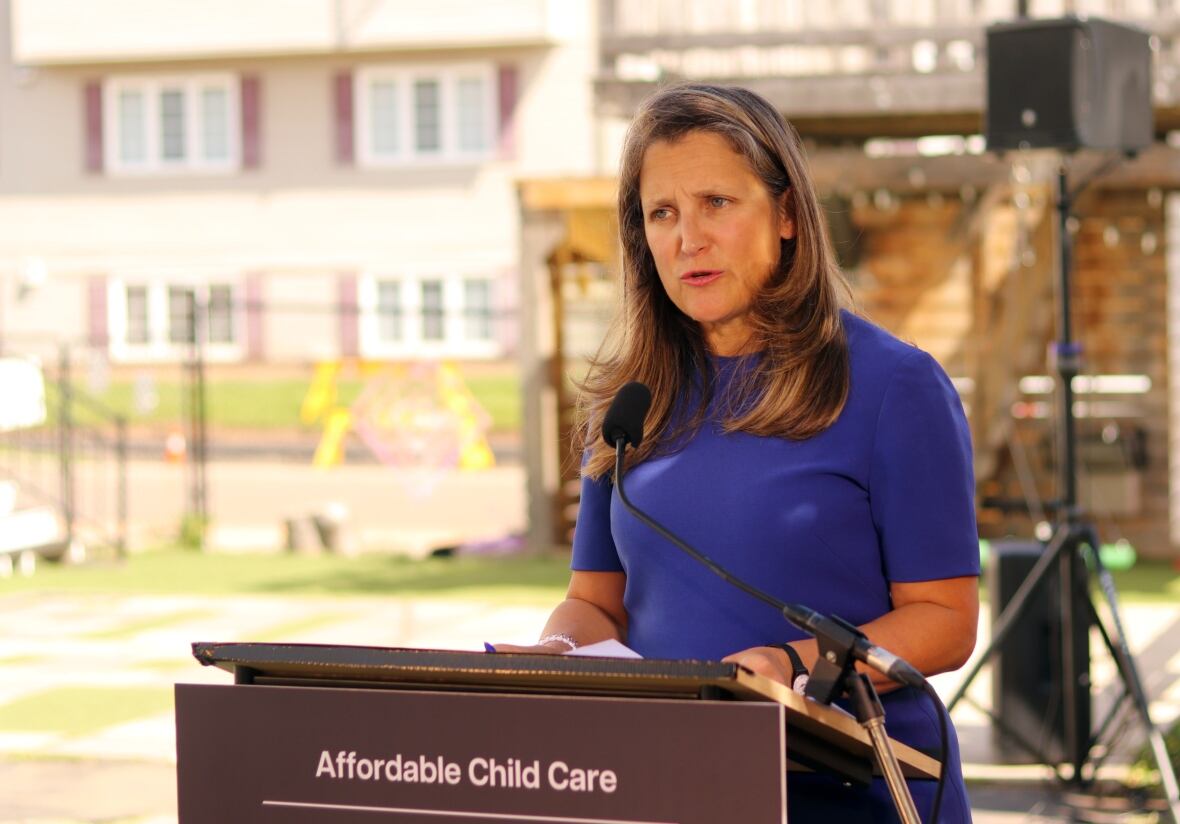Ottawa warns LGBTQ travellers they could be hit by U.S. state laws
Freeland says she's concerned with 'safety of every single Canadian and of every single group of Canadians'

Global Affairs Canada has updated its travel advisory for the United States by warning LGBTQ people that some state laws may affect them on their travels.
"Some states have enacted laws and policies that may affect 2SLGBTQI+ persons. Check relevant state and local laws," said the new advisory, posted Tuesday morning.
The advisory sends visitors to a government web page providing broad information on how members of the community could be targeted while travelling to foreign countries.
That advice tells travellers to beware of laws that criminalize same-sex activities and relationships, or target people based on their sexual orientation or gender identity.
That advice also warns travellers that laws to curb vagrancy and public nuisance incidents could also be used to target them in an effort "to criminalize 2SLGBTQI+ people."
The updated advice does not mention any specific law or state policy, nor does it suggest staying away from a particular state. When asked for details, a department spokesperson pointed to laws targeting the transgender community.
"Since the beginning of 2023, certain states in the U.S. have passed laws banning drag shows and restricting the transgender community from access to gender affirming care and from participation in sporting events," the spokesperson said in a media statement.
"The information is provided to enable travellers to make their own informed decisions regarding destinations. Outside Canada, laws and customs related to sexual orientation, gender identity, gender expression and sex characteristics can be very different from those in Canada."
Speaking in Moncton, N.B. on Tuesday, Deputy Prime Minister Chrystia Freeland said she supported the decision to update the travel advice but would not comment on whether U.S. President Joe Biden was informed before the update was made.
"Every Canadian government, very much including our government, needs to put at the centre of everything we do the interests and the safety of every single Canadian, and of every single group of Canadians," she said. "That's what we're doing now. That's what we're always going to do."

Freeland said that as a former foreign affairs minister, she's confident that travel advisories appearing on the Global Affairs Canada website are "done very professionally."
"We have professionals in the government whose job is to look carefully around the world and to monitor whether there are particular dangers to particular groups of Canadians," she said. "That's their job and it's the right thing to do."
A growing number of anti-LGBT laws
The American Civil Liberties Union (ACLU) says it is tracking 494 anti-LGBTQ bills in the U.S. that are working their way through state legislatures.
Of those bills, the ACLU says 230 will affect schools and education policies, 130 affect the provision of health care, 40 affect civil rights — such as equal treatment under the law — and eight affect public washrooms and other shared facilities.
Other bills at the state level being tracked by the ACLU would ban or censor drag shows, prohibit gender information from being included on government identity documents or limit access to books about LGBTQ people and issues.
The updated travel advice comes after the largest LGBT rights organization in the U.S., the Human Rights Campaign (HRC), joined other civil rights organizations in issuing a travel advisory for Florida in May.
That warning said newly passed laws and policies might pose risks to minorities, immigrants and LGBTQ travellers in the state.
HRC was joined by the NAACP, the League of United Latin American Citizens, the Florida Immigrant Coalition and Equality Florida in issuing travel or relocation warnings for the Sunshine State, one of the most popular U.S. states for tourists.
The HRC notes that Florida's recently passed bathroom law could subject transgender people to criminal penalties for refusing to leave a bathroom when asked, if the bathroom is in a publicly owned or leased building.


